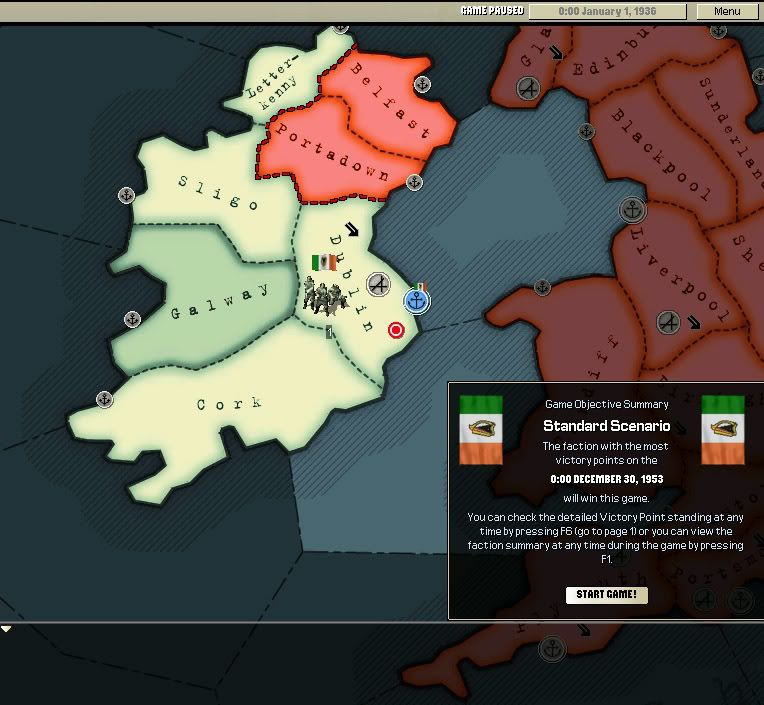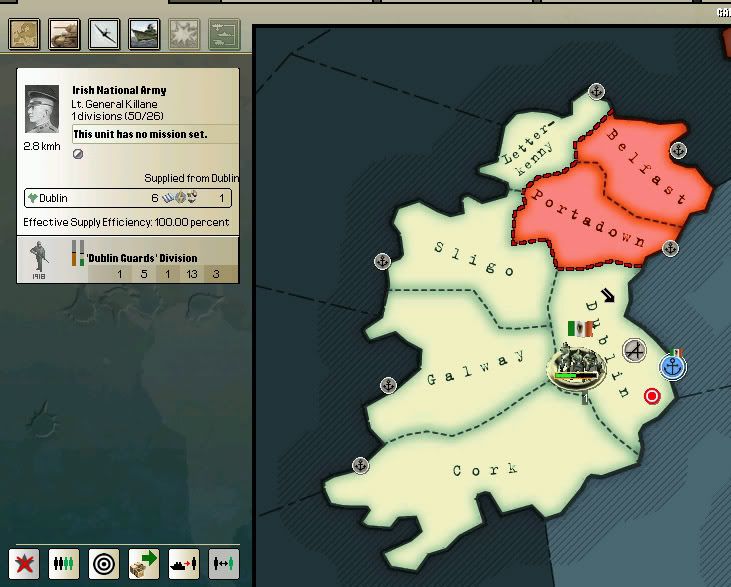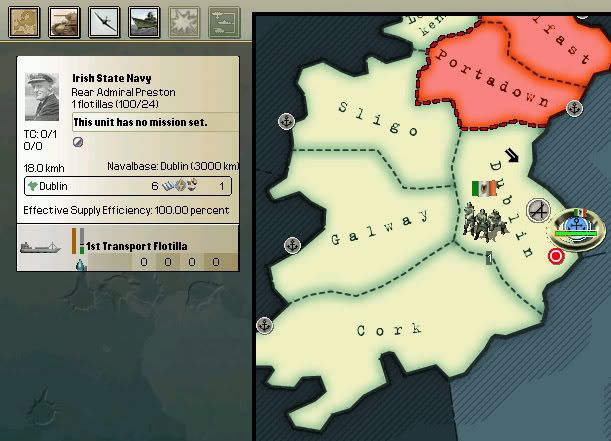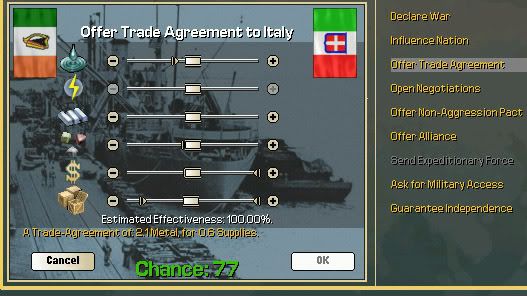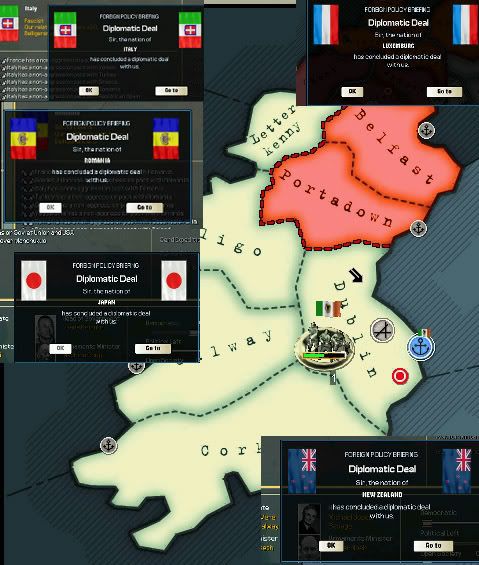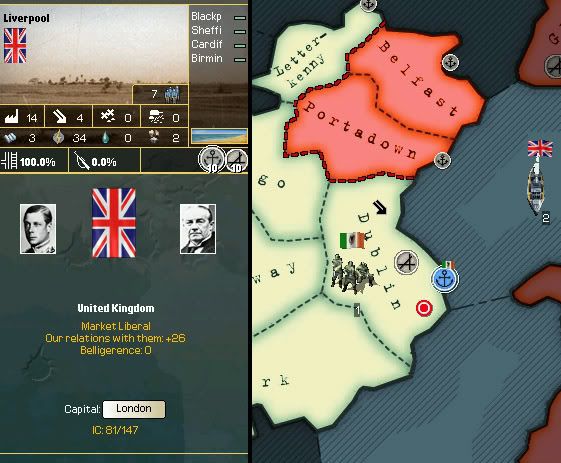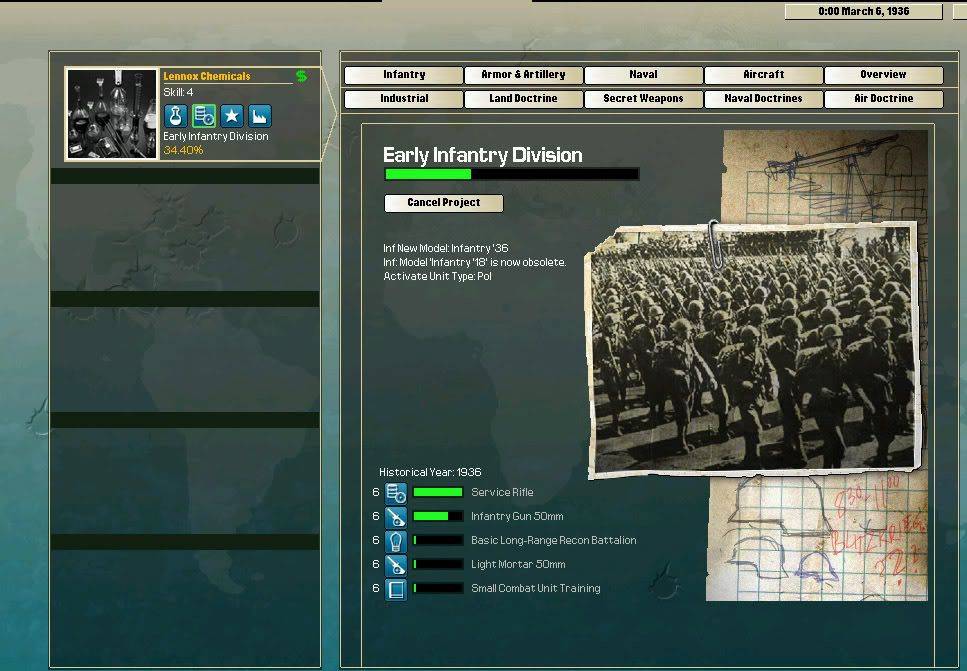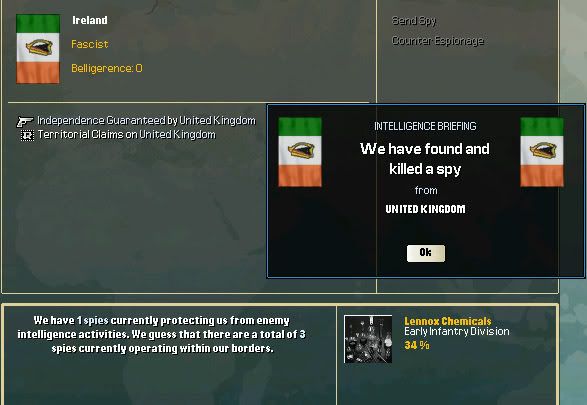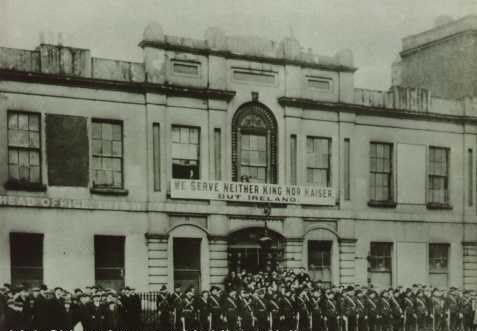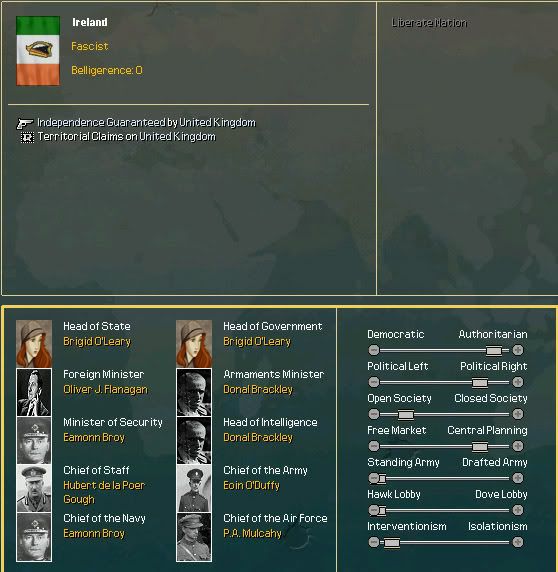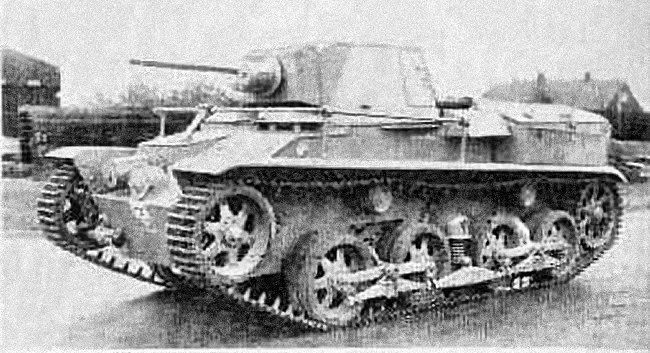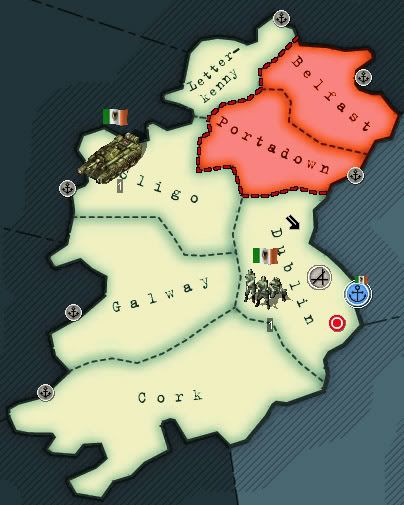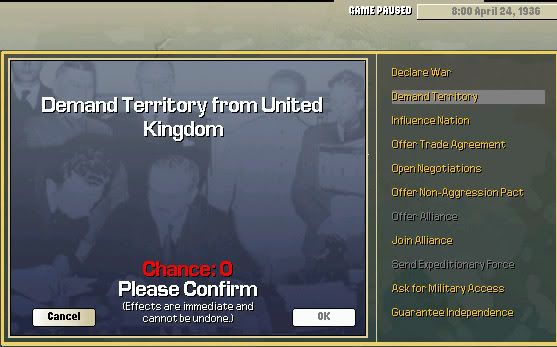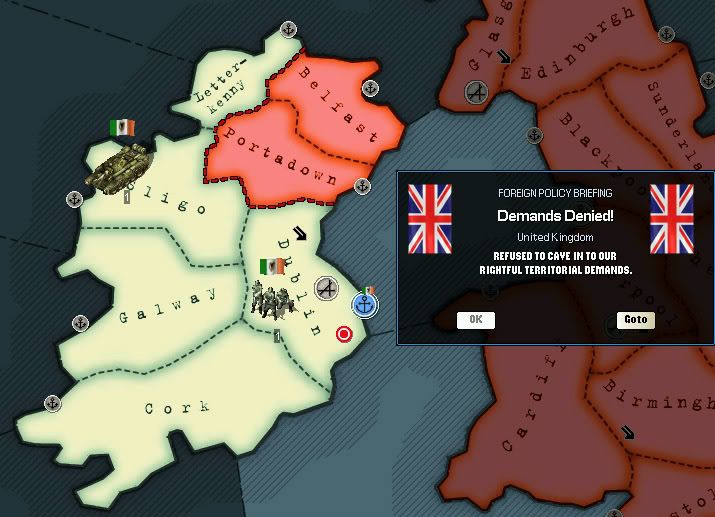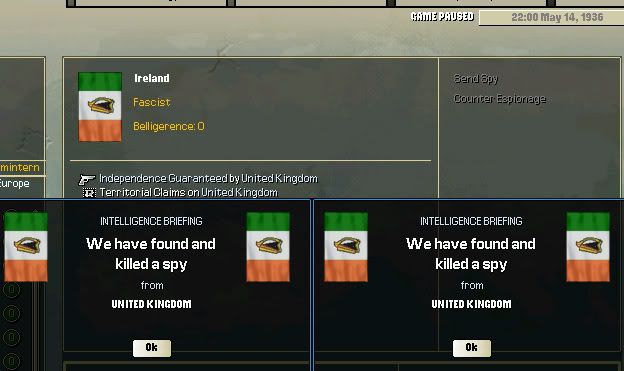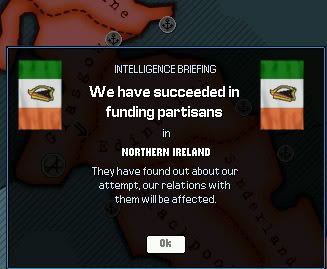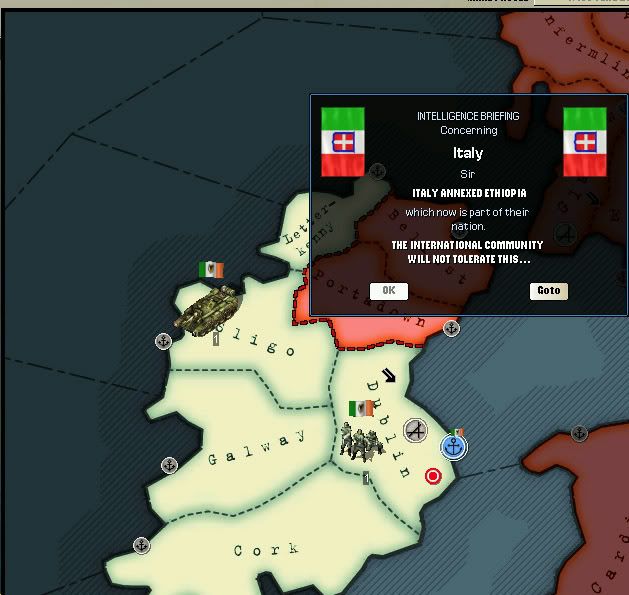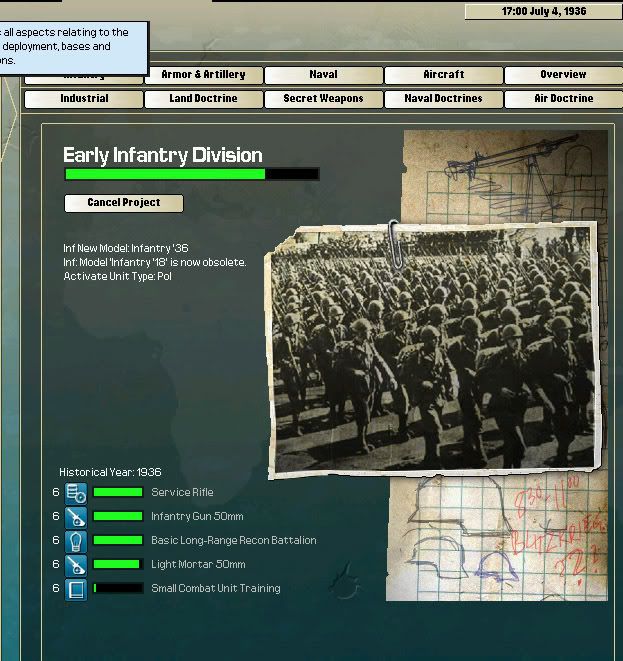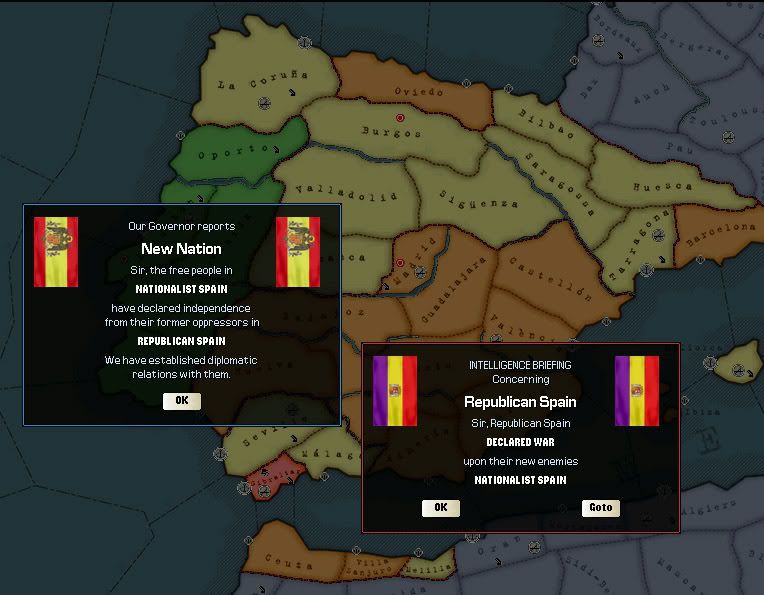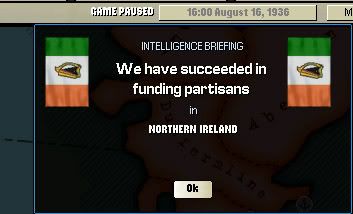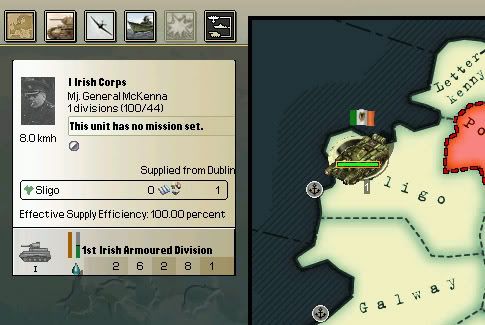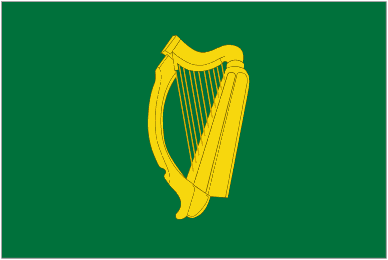
All Free or All Slaves! * An AH Irish AAR
The Great War, thought of as the War to End All Wars by the powers of the time, had begun in 1914. From this war would come tremendous upheaval and turmoil. Europe's map would change dramatically in the course of the next half-decade. While the War dragged on, bold men and women with dreams of liberty quietly planned for the right day to take action.
Of the combatants in Europe, one of the most powerful was the British Empire. However, the British would find that they required the use of more and more colonial and commonwealth forces as casualties mounted. Amongst them were a good many Irishmen, a growing number of whom were becoming disillusioned with the war effort.
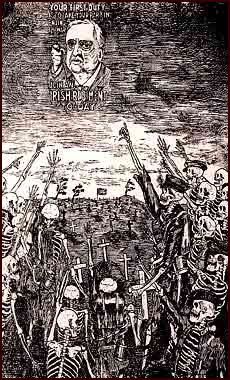
A Sinn Fein anti-recruitment postcard.
Back home, more and more of the Irish populace became frustrated with the British government. Long oppressed by England, they began to take to the streets in protest. Riots broke out. In response to the widespread chaos, the British parliament suspended the Home Rule act in 1915, and sent government forces to handle the rioters. Local law enforcement had been either unable or unwilling to stop their brothers and sisters.
This one act was the point of no return for British rule in Ireland. Popular support for the war effort, already wavering, plummeted. Increasing numbers of Irish were driven towards more extremist groups seeking hope for their beloved homeland. With the Home Rule act suspended, the consensus became that freedom would have to be siezed by force of arms.
Spearheaded by several groups, including Sinn Fein and a new band calling itself the Irish National Front, the plotters arranged for weapons to be smuggled into the country. Mainly they came from the enemies of Britain - largely from Germany. Some were from the black market via Spain. More than a few who'd left Eire for the United States returned with supplies of their own as well. Open revolution would come, on a larger scale than anything attempted before. An entire nation awaited the signal to rise.
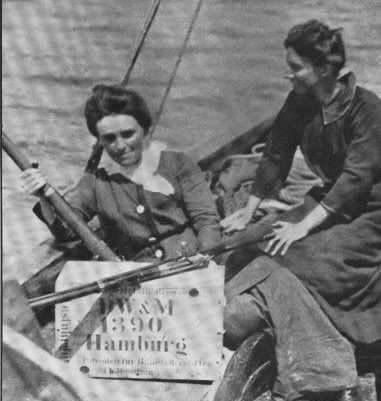
Two Irishwomen inspect weapons newly arrived from Germany.
The signal came during what is now known as the Easter Rising. In April of 1916, armed citizen-soldiers of the broad Coalition of Liberation made their move to sieze control of Dublin. Taken by surprise, the British occupiers were pushed back after a prolonged, bloody fight. Street by street, the Irish freedom fighters forced the Crown's forces out of the city. On the steps of the General Post Office, the Proclamation of the Irish Republic was read, and the tricolor banner raised after the Union Jack had been ripped down.
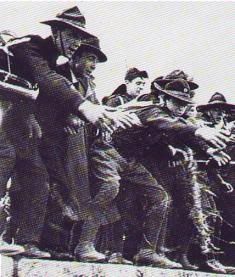
Members of the Irish National Front - known later as 'Greenshirts' - help comrades climb atop a building during the Rising.
Similar scenes took place all across the island; the revolution had come. Though London sent more forces in to smash the rebellion, the Irish fighters proved to be tougher than expected. When pressed, the Irish turned to guerilla tactics, ambushing the British forces in small groups rather than open pitched battles. On the Western Front, Irish soldiers ignored orders from the British command, and some even dared raise the newborn Republic's flag above their piece of the line.
Faced with the prospect of a prolonged war with Irish guerillas and mutiny by those soldiers in the army, Britain was in a bad way. With the United States pressuring London as well, the British finally relented and recognized Ireland as a sovereign state. They even allowed those Irish soldiers who wished to to return home to their new nation. Six months of fighting had bought the Republic independence, but harder trials still lingered ahead.
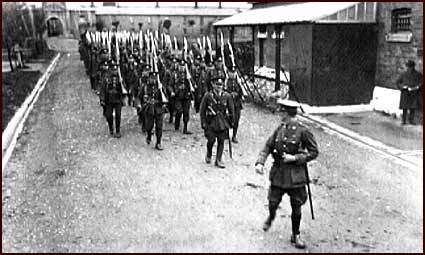
Irish soldiers return home from France, still wearing British uniforms.
While the war raged on in Europe, the Irish state staggered through difficulties in democracy. The provisional government was hardly stable, but it survived through 1918. However, the first elections that same year were marred by British agents influencing the northern counties. It was unclear how much the British played a role in the outcome, but the northern counties refused to ratify the Republic's constitution.
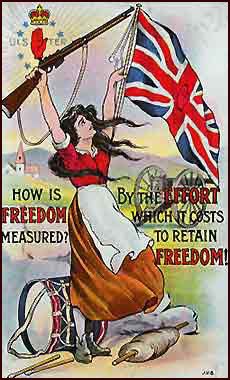
A pro-British recruitment poster from the northern counties.
Claiming they wished to remain British subjects, the government in London sent troops to occupy the northern counties. A breif, undeclared war was waged from 1918-January 1919, between the British and Irish armies. However, the United States helped mediate a final peace. Reluctantly the Irish Republic agreed to leave the two disputed counties in British hands.
This was one more blow to the government's credibility amongst the Irish populace, especially the ultra-nationalists. As the lawmakers in Dublin struggled with the instability of the 1920s, voters turned increasingly to the extremist parties once more. Sinn Fein and the Irish National Party (formerly the Irish National Front) represented the foremost of those extremes; the former on the left and the latter on the right.
As both parties gew in influence, street clashes between their militias became more and more common. Mirroring the situation in Germany, Ireland's factions both claimed to be fighting for the soul of the nation. Sinn Fein had its portion of the Irish Republican Army, the INP had its Greenshirts - so named after the shirts they wore as uniforms. Things became even worse after the stock market crash of 1929. Already staggering economicallly, Ireland was hard-hit by the catastrophic event.
Sinn Fein and other socialist/communist elements took the opportunity to attempt a takeover. Seizing the GPO in Dublin as a symbolic gesture, they declared the government in Dublin dissolved and the formation of an Irish Socialist Republic in its place. In response, the Irish government's small army moved to take the GPO back. As the gunfight raged on, and casualties mounted, the army was reinforced by Greenshirts. With the INP's help, the coup was crushed - and the INP itself grew in power as the 'defenders of Irish sovereignty'.
Winning a landslide in 1934, the INP took the Presidency as well as the parliament. Announcing that the old, unstable democratic model had failed Ireland too many times, and betrayed the Irish people, they dissolved the old Republic in 1936. In its place was the Irish state, a one-party authoritarian nation headed by the charismatic leader of the INP.
Her name was Brigid O'Leary, a young woman whose father had been a ringleader of early INF efforts during the Rising. Born in Dublin to a working class family, she had a knack for firing up crowds and inspiring them. If anyone doubted her abilities as a leader then, they would be proven wrong in the years to come. A new chapter in the Irish nation's story had begun..

The new Irish flag, incorporating the Republic's tricolor with Brian Brou's harp, the symbol of the INP.
----------------
This is the AAR that supplants King of Spain. Obviously, it's a fascist Ireland story... what else is there to say? The INF/P and O'Leary are fictional, but the rest of the world will be pretty historical.
I've had a few inspirations for this, including an old one called Eire Under O'Duffy that never really got going. Hopefully this one will be more productive than that.


